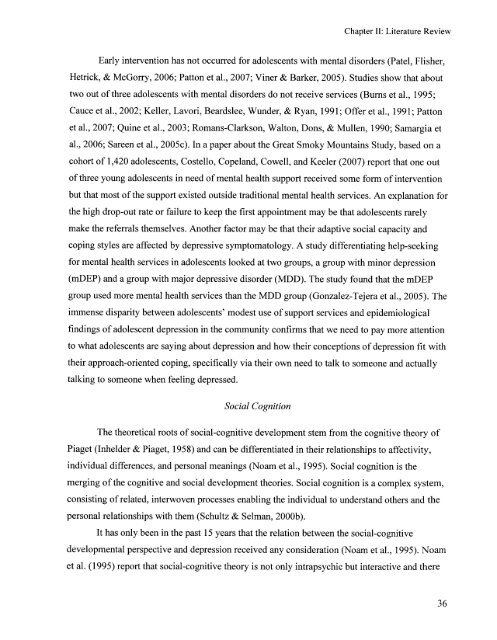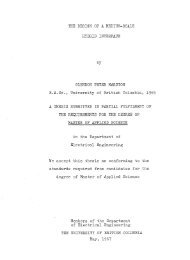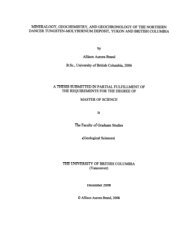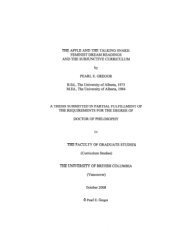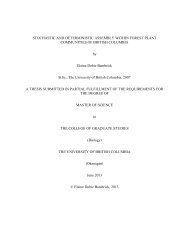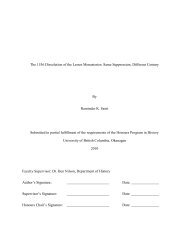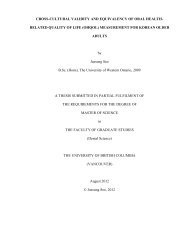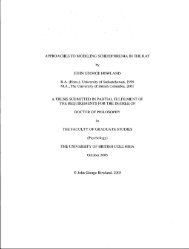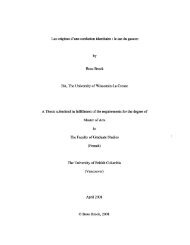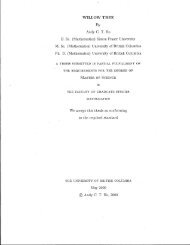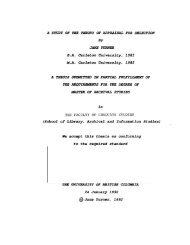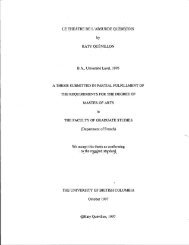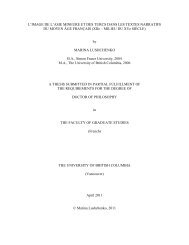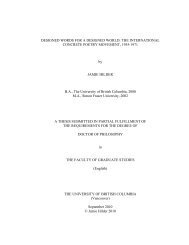how do adolescents define depression? - cIRcle - University of ...
how do adolescents define depression? - cIRcle - University of ...
how do adolescents define depression? - cIRcle - University of ...
Create successful ePaper yourself
Turn your PDF publications into a flip-book with our unique Google optimized e-Paper software.
Chapter II: Literature Review<br />
Early intervention has not occurred for a<strong>do</strong>lescents with mental disorders (Patel, Flisher,<br />
Hetrick, & McGorry, 2006; Patton et al., 2007; Viner & Barker, 2005). Studies s<strong>how</strong> that about<br />
two out <strong>of</strong> three a<strong>do</strong>lescents with mental disorders <strong>do</strong> not receive services (Burns et al., 1995;<br />
Cauce et al., 2002; Keller, Lavori, Beardslee, Wunder, & Ryan, 1991; Offer et al., 1991; Patton<br />
et al., 2007; Quine et al., 2003; Romans-Clarkson, Walton, Dons, & Mullen, 1990; Samargia et<br />
al., 2006; Sareen et al., 2005c). In a paper about the Great Smoky Mountains Study, based on a<br />
cohort <strong>of</strong> 1,420 a<strong>do</strong>lescents, Costello, Copeland, Cowell, and Keeler (2007) report that one out<br />
<strong>of</strong> three young a<strong>do</strong>lescents in need <strong>of</strong> mental health support received some form <strong>of</strong> intervention<br />
but that most <strong>of</strong> the support existed outside traditional mental health services. An explanation for<br />
the high drop-out rate or failure to keep the first appointment may be that a<strong>do</strong>lescents rarely<br />
make the referrals themselves. Another factor may be that their adaptive social capacity and<br />
coping styles are affected by depressive symptomatology. A study differentiating help-seeking<br />
for mental health services in a<strong>do</strong>lescents looked at two groups, a group with minor <strong>depression</strong><br />
(mDEP) and a group with major depressive disorder (MDD). The study found that the mDEP<br />
group used more mental health services than the MDD group (Gonzalez-Tejera et al., 2005). The<br />
immense disparity between a<strong>do</strong>lescents' modest use <strong>of</strong> support services and epidemiological<br />
findings <strong>of</strong> a<strong>do</strong>lescent <strong>depression</strong> in the community confirms that we need to pay more attention<br />
to what a<strong>do</strong>lescents are saying about <strong>depression</strong> and <strong>how</strong> their conceptions <strong>of</strong> <strong>depression</strong> fit with<br />
their approach-oriented coping, specifically via their own need to talk to someone and actually<br />
talking to someone when feeling depressed.<br />
Social Cognition<br />
The theoretical roots <strong>of</strong> social-cognitive development stem from the cognitive theory <strong>of</strong><br />
Piaget (Inhelder & Piaget, 1958) and can be differentiated in their relationships to affectivity,<br />
individual differences, and personal meanings (Noam et al., 1995). Social cognition is the<br />
merging <strong>of</strong> the cognitive and social development theories. Social cognition is a complex system,<br />
consisting <strong>of</strong> related, interwoven processes enabling the individual to understand others and the<br />
personal relationships with them (Schultz & Selman, 2000b).<br />
It has only been in the past 15 years that the relation between the social-cognitive<br />
developmental perspective and <strong>depression</strong> received any consideration (Noam et al., 1995). Noam<br />
et al. (1995) report that social-cognitive theory is not only intrapsychic but interactive and there<br />
36


